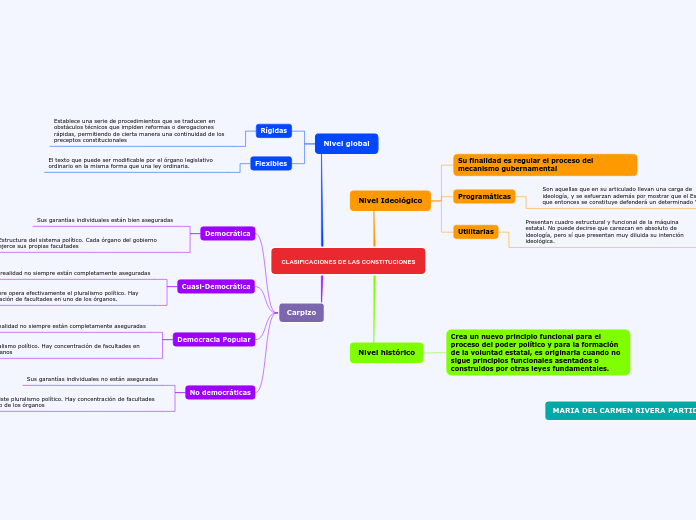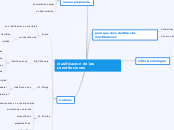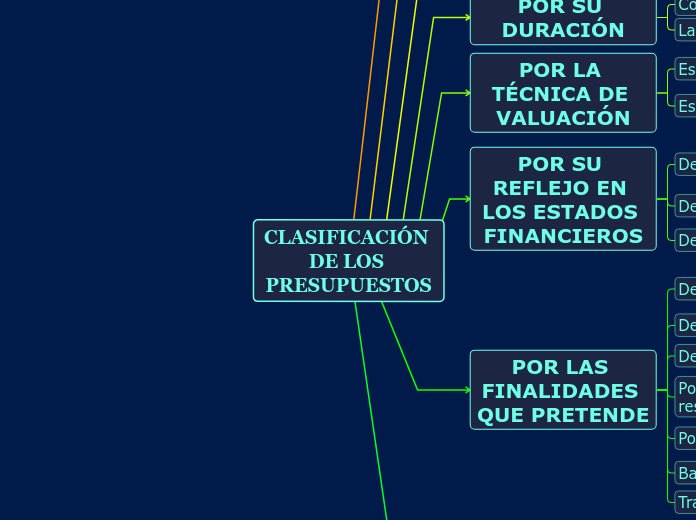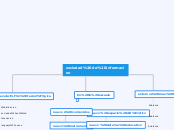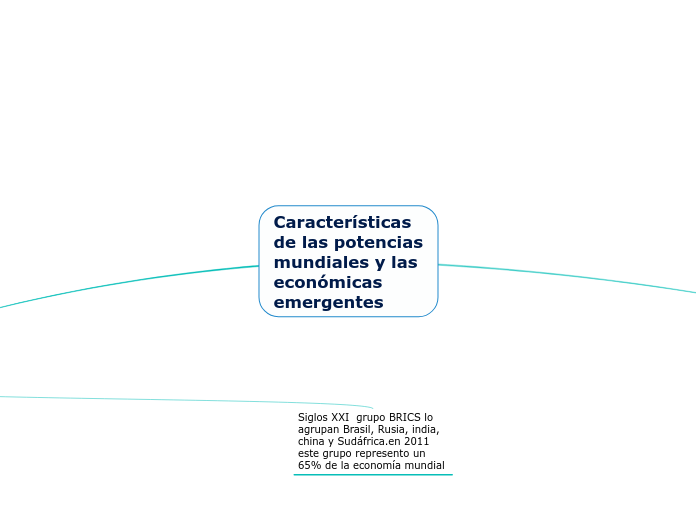MARIA DEL CARMEN RIVERA PARTIDA
CLASIFICACIONES DE LAS CONSTITUCIONES
In linguistics, syntax is the set of rules, principles, and processes that govern the structure of sentences in a given language, usually including word order.
Carpizo
No democráticas
Sus garantías individuales no están aseguradas
Democracia Popular
No existe pluralismo político. Hay concentración de facultades en uno de los órganos
Cuasi-Democrática
No siempre opera efectivamente el pluralismo político. Hay concentración de facultades en uno de los órganos.
En realidad no siempre están completamente aseguradas
Democrática
See the example below and try to create your own simple sentences.
Tim is the driver.
Estructura del sistema político. Cada órgano del gobierno ejerce sus propias facultades
Sus garantías individuales están bien aseguradas
Nivel global
A complex sentence is a sentence that contains an independent clause and one or more dependent clauses.
An independent clause can stand alone as a sentence, but a dependent clause even though it has a subject and a verb cannot stand alone.
Flexibles
A predicative clause may be introduced by conjunctions - that, whether, whether... or, as, as if, as though, because, lest, the way - or connectives.
The latter may be conjunctive pronouns - who, whoever, what, whatever, which - or conjunctive adverbs - where, wherever, when, whenever, how, why.
El texto que puede ser modificable por el órgano legislativo ordinario en la misma forma que una ley ordinaria.
Rígidas
The object clause is a phrase on which a verb performs an action. It falls at the end of a sentence, and is governed by a verb or a preposition.
Establece una serie de procedimientos que se traducen en obstáculos técnicos que impiden reformas o derogaciones rápidas, permitiendo de cierta manera una continuidad de los preceptos constitucionales
Nivel histórico
Crea un nuevo principio funcional para el proceso del poder político y para la formación de la voluntad estatal, es originaria cuando no sigue principios funcionales asentados o construidos por otras leyes fundamentales.
See the example below and try to create your own simple sentences.
Tim drives.
Nivel Ideológico
Utilitarias
An adverbial is an individual word (that is, an adverb), a phrase, or a clause that can modify a verb, an adjective, or a complete sentence.
Presentan cuadro estructural y funcional de la máquina estatal. No puede decirse que carezcan en absoluto de ideología, pero sí que presentan muy diluida su intención ideológica.
Programáticas
The attribute is defined as a quality or characteristic of a person, place or thing.
Son aquellas que en su articulado llevan una carga de ideología, y se esfuerzan además por mostrar que el Estado que entonces se constituye defenderá un determinado 'credo'.
Su finalidad es regular el proceso del mecanismo gubernamental
The predicative is defined as an adjective or noun forming or contained in the predicate.
Its main trait is that it serves to express a property that is assigned to a 'subject'.
For e.g.: The dog is old.
